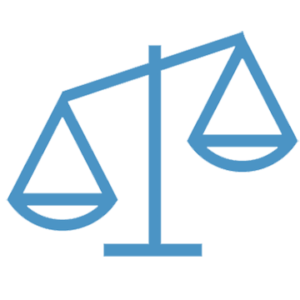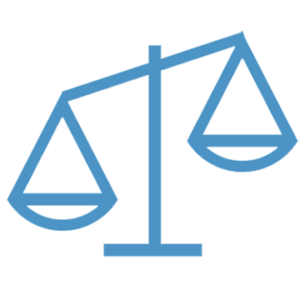In every country, the real power of politics lies not just in speeches or elections — but in policies and governance. These two pillars decide how societies function, how economies grow, and how citizens live their daily lives.
While politics may grab headlines, it’s governance and public policy that shape the world silently but powerfully — turning political promises into practical realities.

🏛️ What Is Policy & Governance?
Before diving deeper, it’s important to understand the difference:
- Policy refers to the plans, principles, or actions that governments design to address public issues — like healthcare, education, economy, or climate.
- Governance is the system or process through which these policies are implemented and monitored.
In simpler words:
“Policy is what a government plans to do; governance is how it actually gets done.”
Together, they form the foundation of good government, ensuring that decisions are made fairly, efficiently, and for the benefit of the people.
⚙️ 1. The Policy-Making Process
Every public policy begins as an idea — often born out of social challenges, public demand, or global change.
Here’s how the process usually unfolds:
- Identifying the Problem: Recognizing a need — such as unemployment, pollution, or inflation.
- Policy Formulation: Experts, lawmakers, and think tanks design potential solutions.
- Decision-Making: The government or parliament approves a specific plan.
- Implementation: Ministries and local authorities put the plan into action.
- Evaluation: The outcomes are measured to see if the policy worked as intended.
This process reflects a cycle of continuous improvement, where feedback leads to better governance and accountability.
🧭 2. The Principles of Good Governance
Effective governance isn’t about control — it’s about service, transparency, and justice.
According to the United Nations, good governance is based on eight key principles:
- Participation: All citizens have a voice in decision-making.
- Rule of Law: Laws are fair, transparent, and equally applied.
- Transparency: Actions and decisions are open to public scrutiny.
- Responsiveness: Institutions serve people’s needs quickly and efficiently.
- Consensus-Oriented: Policies consider diverse opinions.
- Equity and Inclusiveness: Everyone gets equal opportunity and representation.
- Effectiveness and Efficiency: Resources are used wisely.
- Accountability: Leaders answer for their actions and results.
When these principles are followed, trust in government increases, and nations grow stronger.

🌍 3. Global Examples of Strong Policy & Governance
Around the world, some countries are recognized for their effective governance models — blending innovation, transparency, and citizen engagement.
🔹 Singapore: Governance through Efficiency
Singapore is often cited as one of the most efficiently governed nations. Its strict anti-corruption laws, digital governance systems, and long-term urban planning make it a model of success.
🔹 Sweden: Policy through Social Welfare
Sweden’s governance focuses on equality, education, and environmental sustainability — showing how policy can balance growth with human well-being.
🔹 New Zealand: Transparency and Trust
New Zealand ranks high in transparency and inclusivity. Its open government policies encourage public participation in decision-making.
These examples prove that good governance isn’t about wealth — it’s about willpower, integrity, and innovation.
📈 4. Why Policy & Governance Matter
Policies affect every part of human life — even in ways most people don’t realize.
They determine:
- The quality of education your children receive 🎓
- The taxes you pay 💰
- The healthcare you get 🏥
- The roads and transport you use 🚗
- The rights and freedoms you enjoy 🗳️
Without effective governance, even the best policies can fail. For example:
- A health policy without proper funding leads to hospital shortages.
- An education reform without teacher training produces poor results.
- Environmental laws without enforcement increase pollution.
That’s why governance is the engine that keeps policy alive.
💬 5. Policy Challenges in the 21st Century
Modern governance faces complex challenges that require adaptation and innovation:
🌐 Globalization & Interdependence
Decisions in one country often affect others — trade policies, climate laws, or immigration controls now have global consequences.
🧠 Technology & AI
Governments must regulate artificial intelligence, digital privacy, and cybersecurity while still promoting innovation.
🌿 Climate Change
Sustainability has become a core issue in modern policymaking, forcing nations to adopt eco-friendly and long-term governance strategies.
👥 Social Inequality
Bridging the gap between rich and poor remains one of the greatest policy challenges worldwide.
⚖️ Corruption & Accountability
Without transparency, trust erodes — and even well-designed policies fail to deliver.
“A policy without integrity is like a promise without action.”
🧩 6. Role of Citizens in Governance
Governance is not a one-way process. Citizens play a crucial role through:
- Voting in elections
- Public feedback on policy decisions
- Civil society organizations monitoring transparency
- Social media activism and awareness campaigns
Modern democracy is evolving into participatory governance, where every individual has the power to influence change.
📊 7. Digital Governance: The Future of Public Service
In the digital age, e-governance has revolutionized how citizens interact with governments.
💡 Examples of E-Governance Initiatives:
- Online tax filing and business registration
- Digital ID systems (like India’s Aadhaar)
- Virtual town halls and e-voting systems
- Open data portals for transparency
Digital tools not only save time and cost, but also empower citizens to hold leaders accountable in real time.
🌏 8. International Cooperation in Policy & Governance
- Technical training
- Policy recommendations
- Transparency reports
- Sustainable Development Goals (SDGs)
These global collaborations promote fairness, equality, and human rights — building a world where policies serve everyone, not just the powerful.
🔮 9. The Future of Governance: Smarter, Greener, Fairer
The next era of governance will rely on data, innovation, and inclusion.
Governments will increasingly use:
- AI and big data for policy forecasting
- Sustainable frameworks for green development
- Collaborative decision-making with citizen involvement
Future governance will be smart, digital, and people-centered — aiming not just for growth, but for human dignity and justice.

💬 Conclusion: Policies Shape Nations, Governance Sustains Them
At its core, policy and governance represent the promise of democracy — that power can be used for progress.
Good policies inspire change, but good governance makes that change real. Together, they turn vision into action and leadership into legacy.
“Strong nations are not built by powerful rulers — they are built by policies that serve the people and governance that honors the truth.”